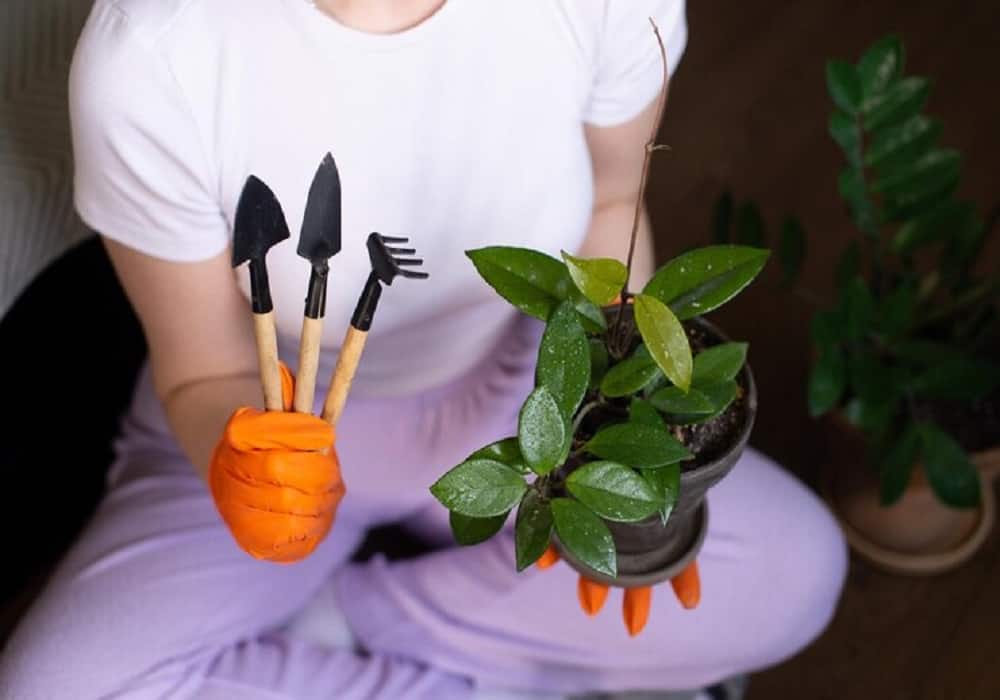Simple Home Gardening Tips for Beginners to Kickstart Your Green Journey
Home gardening is a fulfilling endeavor that enhances your daily life with joy, fresh air, and a slice of nature. While the prospect of starting a garden may be daunting for novices, the experience can be both enjoyable and manageable with appropriate guidance and strategies. Whether you possess a large yard or a small balcony, these home gardening tips for beginners will empower you to confidently commence your horticultural journey.
1. Begin with a Small Scale and Envision Greatness
For those new to gardening, starting on a smaller scale is crucial. Rather than embarking on an extensive gardening project, concentrate on cultivating a select few plants or designating a compact area. This method enables effective management of your time and resources while enhancing your gardening expertise.
Consider nurturing easy-to-maintain plants like herbs (basil, mint, or cilantro) or resilient flowers such as marigolds. These plants rapidly grow and provide the gratification of seeing early results.
2. Select an Appropriate Location: home gardening tips for beginners
The success of your garden heavily depends on its location. Most plants necessitate 6-8 hours of sunlight each day, so it is essential to choose a spot that enjoys abundant light. If gardening indoors, position your pots near windows or utilize grow lights to augment natural light.
Be mindful of wind patterns and avoid areas with strong winds that may jeopardize the health of your plants.
3. Comprehend Your Soil
Robust soil serves as the cornerstone of a flourishing garden. Evaluate your soil’s texture and pH level to ascertain the most suitable plants for growth. For beginners, utilizing pre-packaged potting soil or crafting a basic compost mix from kitchen scraps can significantly contribute to fostering healthy soil.
Remember to enhance the soil with organic matter, such as compost or manure, to supply essential nutrients to your plants.
4. Choose Suitable Plants
Not every plant thrives in all climates. It is vital to select plants that are well-adapted to your local weather conditions and soil type. For novice gardeners, consider low-maintenance options such as succulents, lettuce, or cherry tomatoes.
For added vibrancy, incorporate flowering plants like petunias or zinnias. Research the care requirements for each plant to ensure you can adequately meet their needs.
5. Utilize Appropriate Tools
Having the proper tools greatly simplifies gardening tasks. Essential tools for beginners include:
- A trowel for planting and digging.
- Pruners for cutting stems and leaves.
- A watering can or hose for irrigation purposes.
- Gardening gloves for hand protection.
Invest in high-quality tools that are durable and enhance the efficiency of your gardening activities.
6. Water Judiciously
Overwatering is a frequent error made by novice gardeners. Different plants have varying water needs, so it is imperative to comprehend the specific requirements of each.
Utilize the finger test: insert your finger into the soil approximately an inch deep. If it feels dry, it is time to water. Water early in the morning or late in the evening to minimize evaporation and enable optimal moisture absorption by the plants.
7. Master the Art of Mulching
Mulching is an effective yet straightforward technique for retaining soil moisture, inhibiting weeds, and moderating temperature. Employ organic mulch such as wood chips, straw, or dried leaves around your plants.
Mulching not only enhances soil quality but also reduces the frequency of watering, making it an environmentally-friendly practice.
8. Monitor for Pests and Diseases
Ensuring the health of your plants requires vigilance against pests and diseases. Conduct regular inspections of your garden for indicators of infestation, such as eaten leaves or discoloration.
Utilize natural pest management techniques such as neem oil sprays or introducing beneficial insects like ladybugs to deter harmful pests. It is advisable to avoid the use of harsh chemical pesticides, particularly in vegetable gardens.
9. Regular Pruning and Maintenance
Pruning encourages better growth by eliminating dead or damaged leaves and branches. Consistent maintenance is essential for preserving the health and vibrancy of your garden.
Allocate a few minutes each day to monitor your plants, remove weeds, and tidy up any fallen leaves. This routine care allows you to identify potential issues early and maintains the flourishing state of your garden.
10. Cultivate Patience and Continuous Learning
Gardening is a journey that requires both patience and ongoing education. Not every plant will thrive, and errors are a natural part of the process. Treat each experience as an opportunity to enhance your knowledge.
Participate in online gardening forums, view instructional videos, or read literature to broaden your understanding. Over time, you will develop a more profound connection with your garden and observe gratifying outcomes.
The Advantages of Home Gardening
Home gardening offers numerous advantages, including:
- Enhancing air quality in your home environment.
- Providing access to fresh, organic vegetables and herbs.
- Alleviating stress and promoting mental well-being.
- Fostering a sustainable lifestyle.
In Conclusion
Embarking on your home gardening venture does not have to be daunting. By adhering to these home gardening tips for beginners, you can engage in a rewarding and productive gardening experience. Begin modestly, remain steadfast, and witness the transformation of your green space into a beautiful and bountiful sanctuary.






